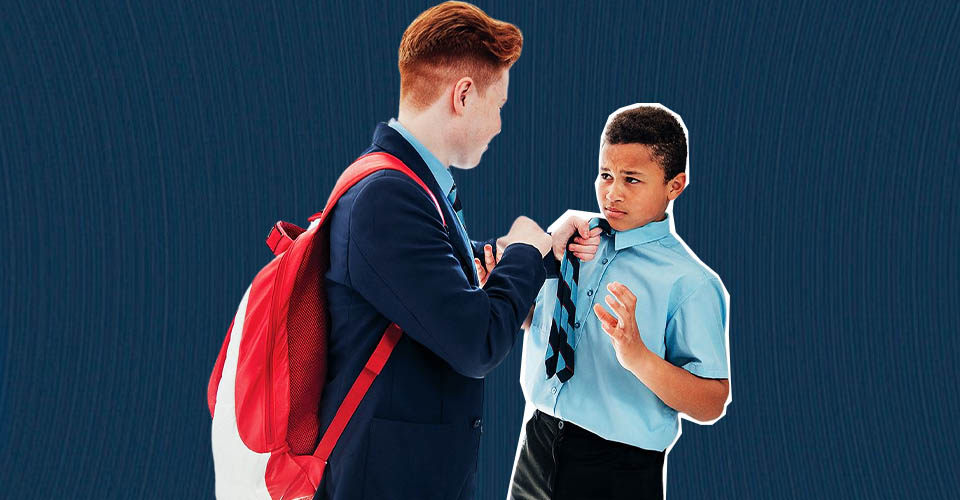Parenting involves teaching children how to behave in a way that helps them grow into good adults. That’s where learning how to discipline your child comes in. It’s not just about punishment; it’s about guiding kids with clear rules and love.
In this guide, we’ll explore why discipline matters, clear up some misunderstandings, and share ten easy tips to help parents provide positive child discipline.
Whether you’re a new parent or have been at it for a while, this guide is here to help you build a strong relationship with your child while helping them learn and grow.
Why Is Child Discipline Important?
Child rearing is all about discipline. It shapes the way kids behave, thinks, and feel. And how they’ll see the world and interact with it as adults too!
Child discipline is nothing more than a set of rules to follow and expectations to meet put in place by parents. Consistency is key, so make sure to use positive reinforcement whenever possible, but don’t shy away from consequences when misbehavior happens either.
While learning how to discipline your child it is important to know that different ages require different approaches when it comes to discipline though. Children with mental health issues will need even more specialized treatment too.
The American Academy of Pediatrics doesn’t condone physical or verbal punishment— like spanking or yelling — because they’ve been found to increase aggression and anger in kids over time.
Not only that, but they also pose both immediate and long-term physical risks for the child, which only get worse when things are taken too far.
Learning how to discipline your child requires instead of punishing bad behavior, try using strategies that reward good behavior consistently instead.
How To Discipline Your Child: 10 Expert Tips!
Disciplining a child effectively requires a balance of firmness and empathy. Here are ten expert tips to help you constructively navigate discipline:
1. Establish Clear Expectations:
Learning how to discipline your child goes hand in hand with clear expectations and boundaries.
Communicate the rules and boundaries calmly and consistently. When expectations are crystal clear, your child understands what behavior is acceptable and what is not.
This clarity reduces confusion and helps your child know what is expected of them in various situations. It’s crucial to discuss these expectations regularly and address any questions or misunderstandings your child may have.
Reinforce these expectations by reminding your child of them regularly and praising them when they follow them correctly.
2. Be Consistent:
Consistency is fundamental in disciplining your child. Stick to the rules you’ve established, enforcing them consistently regardless of the circumstances or your mood.
When you’re consistent, your child knows what to expect and understands that there are consequences for their actions. This consistency helps reinforce the importance of following rules and encourages your child to behave appropriately in the future.
Consistency also helps build trust between you and your child, as they can rely on you to be fair and predictable in your discipline.
3. Use Positive Reinforcement:
In addition to addressing negative behavior, it’s essential to recognize and reinforce positive behavior. Praise and reward your child when they behave well, highlighting the actions you want to see more of.
Positive reinforcement encourages your child to continue exhibiting good behavior and creates a more positive atmosphere at home. Remember to be specific when praising your child, pointing out exactly what they did well and why it’s important.
By focusing on positive reinforcement, you can help build your child’s self-esteem and confidence.
Read More: Positive Parenting Tips For Toddlers – 10 Parenting Insights You Can’t Miss
4. Set Consequences:
Learning how to discipline your child requires you to establish clear consequences for misbehavior in advance.
Make sure your child understands the potential outcomes of their actions and that these consequences are consistently applied. Consequences should be fair, reasonable, and related to the misbehavior.
By setting clear expectations and consequences, you help your child understand the importance of making good choices and taking responsibility for their actions. Discuss these consequences with your child regularly, so they understand the consequences of their actions and can make informed decisions about their behavior.
5. Stay Calm:
Maintain a calm and composed demeanor when addressing misbehavior. Losing your temper can escalate the situation and make it harder to effectively discipline your child.
Take a moment to collect your thoughts before responding, and speak to your child calmly and respectfully. By staying calm, you model healthy emotional regulation for your child and demonstrate how to handle challenging situations calmly and effectively.
Remember that your child looks to you for guidance on how to behave in difficult situations, so it’s essential to model the behavior you want to see in them. So the way you take to how to discipline your child can model their future behavior.
6. Use Time-Outs Wisely:
Time-outs can be an effective tool for addressing misbehavior, but it’s essential to use them wisely. Choose a designated time-out area and calmly explain to your child why they are being placed in time-out.
Keep time-outs brief, typically one minute per year of age, and use them as an opportunity for your child to calm down and reflect on their behavior. After the time-out, discuss what happened with your child and encourage them to make better choices in the future.
Remember to be consistent with your use of time-outs and to follow through with the consequences you’ve established.
7. Be Firm but Fair:
Maintain firm and consistent boundaries while also being fair and understanding. Avoid using punishments that are too harsh or lenient, as this can undermine the effectiveness of your discipline.
Instead, focus on teaching your child the importance of following rules and taking responsibility for their actions. Be firm when enforcing consequences for misbehavior, but also be willing to listen to your child’s perspective and offer guidance and support as needed.
By being firm but fair, you can help your child understand the importance of accountability and encourage them to make better choices in the future.
Read More: What Are Family Dynamics? Is Your Family Dynamics Uplifting or Weighing You Down?
8. Encourage Communication:
Communication is the key to many locked doors! Learning how to discipline your child is mostly about learning how to communicate with your child.
Create an open and supportive environment where your child feels comfortable expressing their thoughts and feelings. Encourage communication by actively listening to your child, validating their emotions, and offering support and guidance when needed.
By fostering open communication, you help your child feel understood and valued, which strengthens your relationship and promotes healthy emotional development. Encourage your child to talk to you about their concerns and experiences, and be available to provide guidance and support whenever they need it.
Remember that effective communication is a two-way street, so be sure to listen to your child’s perspective and validate their feelings even if you don’t necessarily agree with them.
9. Lead by Example:
Children learn by observing the behavior of their parents and caregivers. Be a positive role model for your child by demonstrating the values and behaviors you want to instill in them.
Show respect, empathy, and responsibility in your interactions with others, and strive to handle challenging situations calmly and effectively. By leading by example, you teach your child important life skills and help them develop into responsible and compassionate individuals.
Remember that your actions speak louder than words, so be mindful of the example you’re setting for your child in your everyday interactions.
10. Seek Support When Needed:
Parenting can be challenging, and it’s okay to ask for help when you need it. Don’t hesitate to seek support from family members, friends, or professionals if you’re struggling to discipline your child effectively.
Parenting classes, books, and counseling can provide valuable guidance and resources to help you navigate difficult situations and strengthen your relationship with your child. Remember that seeking support is a sign of strength, and there are people and resources available to assist you in being the best parent you can be.
Don’t be afraid to reach out for help when you need it, as doing so can benefit both you and your child in the long run.
Remember that every child is unique, and discipline strategies may need to be adjusted based on their age, temperament, and developmental stage. Consistency, patience, and a focus on teaching rather than punishing are key principles in effective discipline.
If you’re struggling with discipline issues, don’t hesitate to seek guidance from pediatricians, counselors, or parenting support groups.
Read More: How To Avoid Parental Gaslighting: 5 Effective Tips For Parents!
A Word From Mind Family
As we wrap up this guide on how to discipline your child, Mind Family wants you to remember that understanding, empathy, and patience are key when it comes to child discipline. Learning and growth come through guidance and positive reinforcement.
While harsh punishments may seem like the quickest way to get your point across, children need clear expectations and a steady hand.
If you can keep your instructions consistent and maintain an open line of communication with your kids, you’ll set them up for a lifetime of self-discipline and good decision-making. And don’t forget — there’s no weakness in asking for help when you need it.
To raise happy, confident, and respectful kids we must strive for a nurturing environment.
Frequently Asked Questions (FAQs)
1. Why is child discipline important?
Child discipline is crucial for shaping behavior, teaching responsibility, and preparing children for adulthood.
2. How to discipline your child?
Discipline involves setting clear expectations, being consistent, using positive reinforcement, and maintaining open communication.
3. How do you punish a child for bad behavior?
Instead of punishment, focus on logical consequences, time-outs, and positive reinforcement to encourage good behavior and teach responsibility.


















Leave a Reply